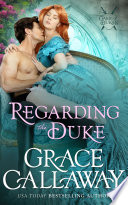In our new series Men and Manners (Regency Culture and Society: Men and Manners (2) – Regency Reader (regrom.com)), there is a maxim: “Never pay a tradesmen’s bill till you have cast it up.”
A reader wanted to know what exactly they meant by cast it up.
I found it used in several Parliamentary papers and other Regency era books referencing money so understand it was a common enough term. To cast up (according to The Century Dictionary (1889)) meant to reckon or calculate. There are also references across many encyclopedias and dictionaries to a Shakespeare line of “cast up” which meant to vomit, but this appeared to be distinguished in the Regency era by adding “accounts” to the end (cast up one’s accounts).
According to Etymoline.com, cast up as “compute, reckon” came first in the 1530s and the definition of “eject, vomit” came after in the late 1500s.
I found an arthimetic book from the Victorian era that has some examples of tradesmen’s bills and the math related to them (The “eclectic” Arithmetic; Adapted to Every Class of School (1874)):
It may be that it was beneficial, for a discount, to calculate the bill and apply the discount. I found another suggested reason for the master to calculate the tradesmen’s bills, worry over household’s padding the bills and skimming off the top:
This last document is from Smeeton and Cruikshank suggests there may be some hyperbole in the account, or tweaking the nose of the gentry. But it is good advice generally to review bills and ensure the math is correct and fair, so we can assume that was the original intent.
I also located some instructions intended for young women on the wisdom of learning basic accounting. Here is an example:
The Home Book : Or, Young Housekeeper’s Assistant (1829)
I leave you with another directive to the young lady:
The Magazine of Domestic Economy (1836)










Thank you for a quick answer and the information about training young ladies to household accounting as well as the reference to the idiom “cast up one’s accounts”. Going down the research rabbit hole is so exciting!
Thank you for the suggestion. I agree, research rabbit holes are thrilling.